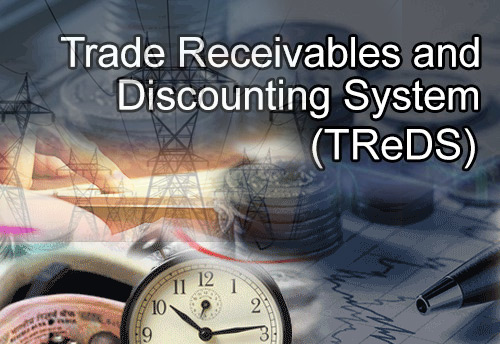Power generating companies seeks for TReDS similar to MSMEs
Updated: Mar 22, 2019 06:40:31am

Power generating companies seeks for TReDS similar to MSMEs
New Delhi, Mar 22 (KNN) Privately owned power generating companies which are reeling under escalating dues have asked Ministry of Power to provide Trade Receivables Discount System (TReDS) facility to them the way it has been provided to MSMEs.
Power generating companies have asked for TReDS as they are reeling under escalating dues because of pending payment from states and litigation.
Ministry of MSME issued an instruction in November 2018 to companies with a turnover of more than Rs 500 Crores and all CPSEs to register on the TReDS platform.
TReDS platform was formed under the guidelines of the RBI. Once registered on the platform, bank accounts of the companies are linked with platform and agreements are signed for providing access for interbank transactions.
TReDS facilitates discounting of both invoices as well as bills of exchange. It also deals with both receivables factoring as well as reverse factoring so that higher transaction volumes come into the system and facilitate better pricing.
The total pending dues of the power distribution companies (discoms) stand at Rs 41,240 crore as on January 2019. Of this, Rs 17,246 crore is dues from sale of power, Rs 6,865 crore are projects wanting compensation for change in law and Rs 17,128 crore arising out of several other litigation.
In a letter written to the ministry of power, Association of Power Producers (APP) said the delay in recovery of receivables, especially regulatory receivables, has created stress on the finances of private generators. APP is the representative body for private power generators.
“Delays in payment impacts their ability to service debt and severely restricts their working capital liquidity. This difficulty in tying up working capital leads to a significant domino effect on the private generators as it impairs their ability to pay for coal and evacuation, has an adverse impact on interest rates, leads to low credit ratings and results in non-compliance of financial covenants under loan agreements leading to imposition of penal interest,” it said.
“Ministry of Power had suggested a similar system to the HLEC, and the HLEC Report had proposed that Ministry of Power may formulate a proposal for Tri-partite Agreement coverage to public financial institutions for discounting bills of IPPs,” said APP. (KNN/JM)











